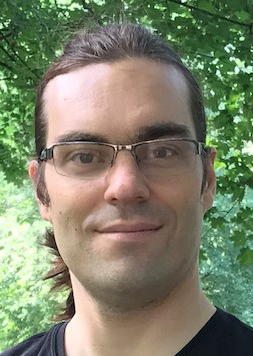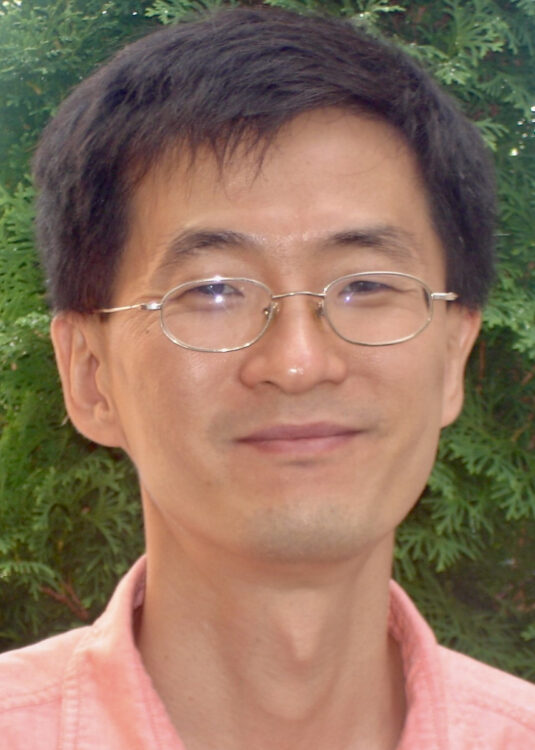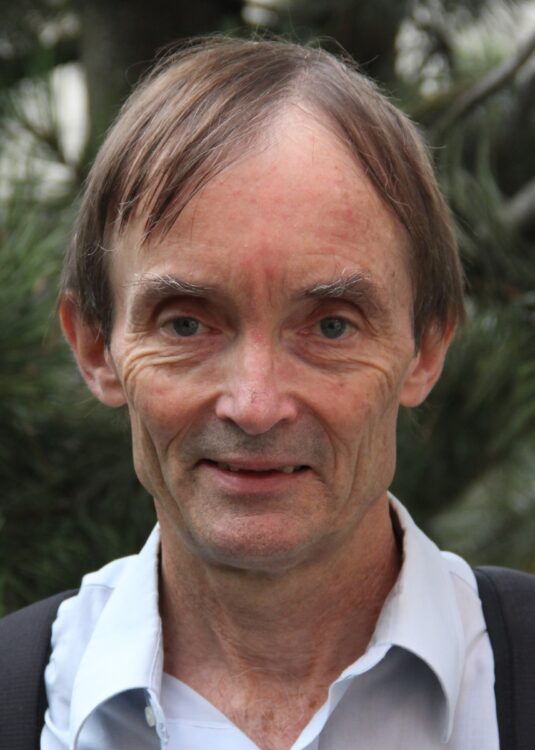Today, the McGill Physics Department is home to three more recipients of research medals from the Canadian Association of Physicists (CAP). Assistant Professor Simon Caron-Huot is the winner of the CAP Herzberg Medal, which recognizes significant achievements for early-career researchers. The CAP-TRIUMF Vogt Medal, which recognizes and encourages significant experimental or theoretical contributions to subatomic physics, goes to Professor Sangyon Jeon. Professor Robert Brandenberger is recognized with the CAP Medal for Lifetime Achievement in Physics.
Caron-Huot recognized for early-career research excellence

Caron-Huot has made important contributions to quantum field theory, which is the basic framework underlying much of theoretical physics – including, particle physics, aspects of condensed matter physics, cosmology, nuclear physics, and mathematical physics. In the CAP announcement, Caron-Huot is praised for, “the creation and development of nonperturbative techniques in conformal field theory, thereby opening the way to broad-ranging applications from particle physics to condensed matter physics.” CAP also celebrated his recent discovery of a Lorentzian inversion formula, which has revolutionized the study of conformal field theories.
“I feel greatly honored to receive the CAP Herzberg medal and particularly humbled to join previous recipients whom I admire,” said Caron-Huot. “Theoretical physics is a collaborative effort and I thank every student, postdoc, colleague and collaborator I have had the privilege to work with.”
Caron-Huot joined McGill’s faculty in 2016, after spending four years as an assistant professor at the Niels Bohr Institute in Copenhagen, before which he was a postdoctoral researcher at the Institute for Advanced Study in Princeton. Caron-Huot earned his PhD in physics from McGill University in 2009, where he studied hot and dense systems, including the quark-gluon plasma.
His work has been recognized internationally. He was awarded the 2017 Gribov Medal from the European Physical Society and the 2018 Hermann Weyl prize. In 2017, he was named a Canada Research Chair (Tier 2) and was invited to become a principal investigator of the Simons collaboration on the non-perturbative bootstrap, a $8 million initiative by the Simons Foundation aimed at forging a new field of theoretical physics based on novel analytic approaches to quantum field theory. Most recently, Simon was awarded the prestigious 2020 New Horizons in Physics Prize for his contributions to the understanding of quantum field theory.
Jeon wins for expertise in high-energy nuclear physics

CAP awarded Professor Sangyong Jeon with the CAP-TRIUMF Vogt medal, which is named in honour of the late Dr. Erich T. Vogt, an esteemed nuclear physicist, and a pioneering founder of TRIUMF, Canada’s particle accelerator centre. Jeon is recognized for his contributions to the study of relativistic collisions of heavy ions and the resulting new form of matter, quark-gluon plasma (QGP).
In the context of the advent of the Relativistic Heavy Ion Collider (RHIC) at Brookhaven National Laboratory, which has identified QGP, and the Large Hadron Collider (LHC), Jeon’s research focuses on theoretical strongly interacting physics. His work largely concerns the physics of relativistic nuclear collisions and in a paper published early in his career, Jeon calculated from first principles the viscosities of a scalar field theory at finite temperature, using diagrammatic techniques. The CAP announcement praised this work as “a technical tour de force, which has set the stage for all the fundamental calculations of the low-energy behaviour of field theories to come.” The highly cited paper has been influential to studies in nuclear science, particle physics, fundamental field theory studies, and theoretical cosmology. In addition to his many significant theory papers, Jeon is responsible for some of the phenomenology cornerstones of high-energy nuclear science.
“I am deeply honoured to receive this year’s CAP-TRIUMF Vogt Medal. I would like to thank all my collaborators, students, and postdocs over the years,” said Jeon. “Without them and the tradition of strong subatomic physics research at McGill, this would not have been possible.”
Jeon has mentored students and young scientists in numerical hydrodynamics, in finite temperature relativistic quantum field theory, in effective theories, in the analysis and simulation of QCD jets, and in relativistic kinetic theory. He was previously the director of McGill’s High-Performance Computing Centre, and now chairs the Department of Physics at McGill. In 2018, he was made a Fellow of the American Physical Society.
A lifetime of achievement in physics

Robert Brandenberger, Canada Research Chair (Tier 1), and professor of physics at McGill since 2004, has been a leading figure in the field of theoretical cosmology for more than 35 years. This field has been revolutionized by the advent of modern observation techniques and throughout his career, Brandenberger has been at the forefront of studying models of the very early universe and the predictions which can be inferred for observations.
CAP awarded the lifetime achievement medal in recognition of his many contributions, including ground-breaking developments in theoretical cosmology and recent dramatic advances in observational astronomy of the early universe. CAP celebrated Brandenberger’s “efforts to probe the connections between particle physics and cosmology by studying the effects of cosmic strings”, citing his 1989 paper in which he and Harvard University’s C. Vafa demonstrated that superstring theory may lead to a resolution of the cosmological singularity. The model which Brandenberger and Vafa proposed (String Gas Cosmology) was then developed into a promising alternative to inflationary cosmology, a model which in fact makes predictions for upcoming observations.
“I am greatly honoured to have been chosen as recipient of the 2021 CAP Lifetime Achievement Medal,” said Brandenberger. “I am grateful to my teachers, my collaborators, my students and my family for their encouragement, and I look forward to many more interesting research results.”
